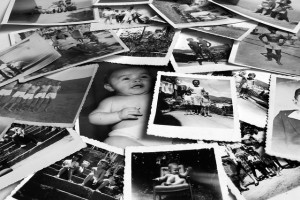Memories are shaped by what you feel and what you believe. They are created by your perceptions. The neuroscientist Gerald M. Edelman often speaks of perceiving as “creating,” and remembering as “recreating” or “recategorizing.” Your memory works like a reconstruction. Neuroscientists have shown that each time we remember something, we are reconstructing the event, or making a new memory. We are reassembling it from bits and pieces throughout the mind. And psychologists state that we suppress memories that are painful or damaging to our self-esteem or our perception of who we are. We re-write the story to reflect our beliefs. Memory is changeable and unreliable. It is adaptive and flexible.
Imagine a wonderful memory. Perhaps you were with a loved one, doing something fun and enjoying each other. When you remember a moment of laughter or a special touch, you feel the warmth and happiness. You may recall words that opened your heart or made you feel good about yourself. You may be reminded of a sight or a sound, a feeling or a fragrance. Each sensory piece adds to the memory…your thoughts and beliefs about the experience and the way it was.
And then time passes. The future can influence the past. Travel back in time to that memory… back to that wonderful memory just as you first recalled it. And now add this perspective to your memory. Since that time, the people you shared the memory with are no longer in your present life. Does your memory remain the same? Or will it be tainted? Does your current knowledge influence your perception of the past you remember?
Perhaps your relationship ended because you learned your other was having an affair. Perhaps it was happening right at the time you were experiencing your wonderful memory. Maybe the relationship broke because of something you did. The laughter and fun you recall now feel different in your memory. Diminished. Your wonderful memory has changed. It has been distorted by negative emotions. When memories change, perception changes. A wedding album of photos can serve as a reminder of a joyful day and the beginning of a wonderful future. And after a divorce happens, the same photographs become a reminder of lost dreams and broken promises. It’s not that the reality of the experience changed. The perception of it has changed. And perception influences your feelings about your memories. What is truth? Whatever you believe it is.
Or maybe it wasn’t the relationship that died. Maybe it was the other person in the relationship. Maybe your memory is of the last time you ever saw each other. All faults have been forgiven. And now the memory has become more important and taken on a new significance. Everything has meaning. Everything about the meeting and the person has been elevated to reverence. Again, your perception of the experience has changed the memory. Future influences past. It’s not possible for the memory to stay the same. It has been reconstructed.
Editing might be a way to learn from experience and benefit from life lessons. If recalling a difficult time were not offset by the knowledge that things worked out, we may not gain confidence. If remembering a disastrous breakup helps us to avoid a toxic relationship, we may experience real love. Perhaps it’s better if we can rewrite our memories every time we recall them. Reconstruction may be the mind’s way of keeping us in the present by revising old memories in view of everything that has happened since.
Of course, we all know that others have different impressions and memories about shared experiences. Often husbands and wives or immediate family members tend to agree about the past. They tend to come to a shared representation of what happened. Each individual has their own perception, but they agree on the event and the emotional impact. It happens when we share a moment in history, such as September 11, 2001. We assimilate what we read, what we are told, what others say and think. As a society we see and hear with other eyes and ears and enter into and contribute to the common mind. We create a shared memory, an accepted belief of the truth.
But I ask you to consider if there are any individual memories which have been tainted, diminished or elevated? What is the truth? Whatever you decide it is. If you think about the past, choose to focus on the good memories. Reconstruct with love. When you feel the good feelings again, you are creating a vibrational attraction to more of the same. And you are creating that right Now. The only time there ever will be. Remember that!

